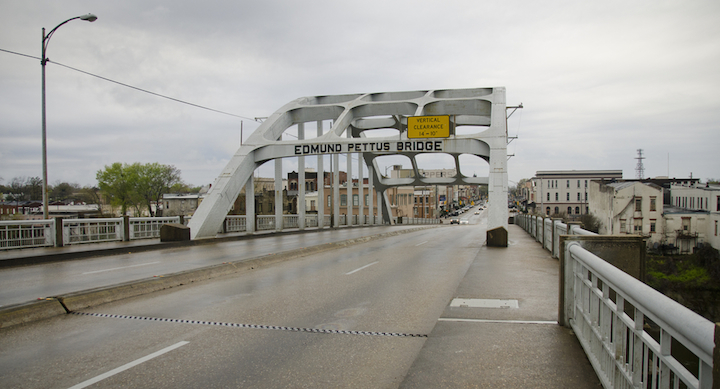Last night my wife and I were invited to attend a San Francisco prescreening of the film, Selma. I am neither a film critic nor a Civil Rights historian, so I’ll leave the critical reviews to those more qualified. But I can say what the movie did to me.
I was shocked, shattered and inspired by this film, which attempts to tell the larger story of the American civil rights movement through the lens of events surrounding the Selma voter rights marches of 1965. I did not fully realize the extent of violence enacted upon peaceful protesters by local and state officials. The most violent of these attacks, Bloody Sunday, happened on my birthday, six years before I was born. Surrounded in the theater, mostly by African Americans who were alive at the time these events took place, I spent most of the 2 hours and 7 minutes of the film choking back tears. I was deeply impressed with the persistence of the activists and the moral courage that led them to offer up their bodies for the cause of justice and equality.
I first learned of the Civil Rights movement from my fourth grade teacher, Mrs. Barbara Owens, who marched with Dr. Martin Luther King Jr. Minneapolis, where I grew up, seemed along ways from the struggles and segregation of the deep South. But when I was sixteen, my family moved to rural Alabama, where I noticed the divide between blacks and whites and often heard rumors of the Klan among my classmates. I graduated from high school 72 miles up the road from Selma. Even in 1987 my parents had to go before a review board to have their voter registration approved.
On a moonlit Sunday night four years ago, I drove through Selma on my way from Birmingham to Tallahassee. The day before I had been speaking at a church in Birmingham where someone asked me how I could raise my kids in such an “ungodly” place as San Francisco. Taken aback by his question–and for better or worse–I said the first thing that came to my mind: “Well, how can you raise your kids in a place where thousands of young black men and women were lynched and strung up in trees by churchgoing people?!”
I believe as a nation we are slowly learning to value both private and public morality—realizing that how we treat the poor and marginalized in public is just as important as what we do in our personal and private lives of piety. I want to learn better how to listen to God’s voice and act with conscience.
For others like me, Selma introduces some courageous people from America’s history who could be our teachers.

